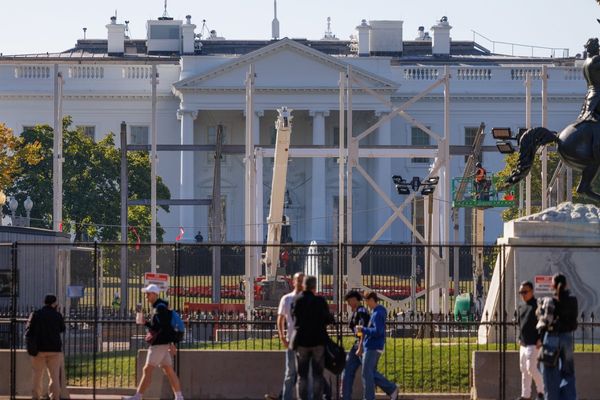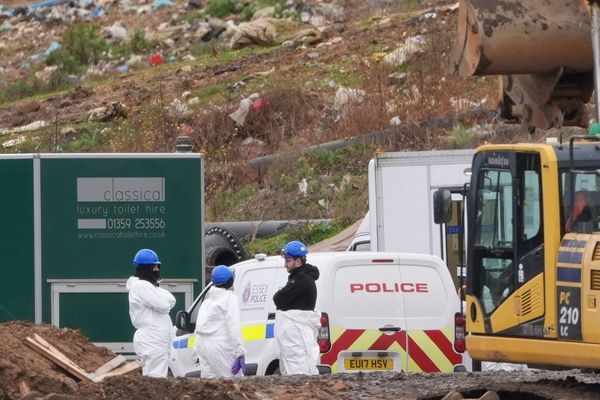
It’s hard to find good news at the moment.
Large parts of Sydney and, in the last couple of days, regional NSW have endured their second, third or even fourth major flood this year, as infrastructure and planning frameworks designed with the now quaint idea of “once in a hundred years” prove plainly inadequate in the face of climate change.
COVID cases are again surging, as are numbers of deaths.
The broken east coast energy market continues to see generators gaming the system by withdrawing capacity.
Mortgage holders are being punished with large consecutive interest rate rises to address an imported inflation problem they can do nothing about.
Workers face big real wage cuts and years of falling real wages on top of a decade of wage stagnation.
That means we can’t even enjoy the upside of a tight labour market and worker shortages, which means disrupted and cancelled services and delays wherever you look. The airline industry, which holds a passionate hatred of its own workforce, falls to pieces the moment the slightest pressure is applied to it.
Longer-term problems that can’t muster much interest from the media, like the continuing crisis in aged care, carry on in the background, like a human misery equivalent of cosmic background radiation (the alleged aged care quality regulator halved its site visits last financial year and cut its overall monitoring by 30%, even as nearly 2000 aged care residents died of COVID from January onwards).
In addition to poor access for first home buyers, renters face skyrocketing rents due to a lack of housing, and rental affordability for low-income earners is at a point of major crisis. People who lose their homes to floods face months living in tents or caravans.
Then there’s higher education, health system problems and the ongoing tragedy that is our failure to Close the Gap.
Let’s have no lazy both-sides-ism about all this — much of the blame lies at the feet of the federal Coalition for a near-decade of climate inaction, wage suppression, no energy policy, demonising negative gearing reform and aged care negligence. Despite invoking “adaptation” as one of its reasons for not doing anything by way of emissions reduction, the Coalition did zip on adaptation investment to improve resilience to more extreme weather. Hundreds of thousands of people have been paying the price in recent months.
But there’s genuine bipartisanship elsewhere for all this. The National Electricity Market — the great neoliberal experiment in creating a market for utility services — is a failure decades in the making across federal and state governments. The problems of the aged care system are decades old. Our current industrial relations system is Labor’s Fair Work Act. The privatisation of Qantas was a Labor reform. The housing crisis is across years and all levels of government and Labor has ditched any plan to fix negative gearing. No government, of whatever stripe, is interested in re-imposing basic COVID measures like mask mandates. Both sides have failed Indigenous Australians.
And independent bureaucrats get to share some of the blame, too. The Reserve Bank misled Australians on interest rates and has retreated to neoliberal orthodoxy at the first whiff of inflation grapeshot, punishing the households they urged to borrow.
A number of these problems are not amenable to business-as-usual policymaking, even if undertaken with goodwill and competence — two characteristics mostly lacking over the past nine years. Building more resilient infrastructure and avoiding what is now a cycle of flood, recovery, repair, flood — where the only improvements come in the speed with which recovery funding flows to victims — is a mammoth undertaking that will need Commonwealth and state coordination. Improving housing access will take more than a small-target home equity scheme and so more social housing. Aged care reform will cost a lot of money just to stop the system sinking into permanent catastrophe. And Labor remains committed to an inadequate emissions reduction target and continues to approve carbon-bomb gas projects.
Australians are entitled to be angry with their governing class — the men and women who occupy positions of power and influence in public policymaking. Not just the politicians and the bureaucrats, but the business leaders who suppress wages and maximise profits, the energy executives who game the system, the fossil fuel executives and lobbyists who captured government, the media executives, editors and senior journalists who cheered on bad policy and demonised good policy. Australians of all stripes — urban, regional, young, old, small business, workers — are paying a steep price for policy failures across a broad front, with little prospect of change any time soon.
But as always it’s low-income earners, the young, the economically marginal, who do it worst. What prospects for people in flood-prone regional communities who struggle to get even basic housing, or a low-income couple in outer suburban areas doomed to a lifetime of renting, or a family that has only seen their household income go backwards in real terms and now face hundreds of dollars extra a month for mortgage repayments? We’re failing millions of Australians.
If that’s not cause for deep introspection by government new and old, bureaucrats and business leaders, then it’s not clear what would be.







